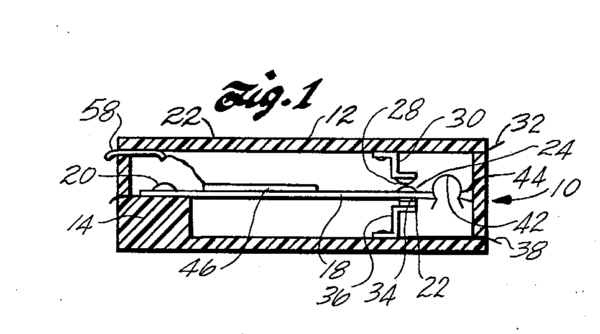Why Automation Has Failed In The Past
Automation is a vexing subject because it costs money and results in less profit. It should improve profits, but somehow in the past, it has always ended up costing more.
Any system or structure requires control. In the case of the US Democratic Party control is achieved by fear i.e. Hillary’s tantrums lasting longer than her speeches. Screaming at your own employees is a routinely applied technique and some CEOs even disconnect electronic monitoring of their boardrooms to hide that fact. Hillary does not have “control†over independent media journalists but will apparently not hesitate to scream at the major shareholders who “control†that media, which in turn “control†those silly journalists.
It would be fair to say that Hillary has very effective “control†measures in place. The interesting part of her technique is that it does not cost her money. The reason is that it is part of her natural personality and therefore inherent in her “system†design.
An industrial comparison to Hillary’s control “mechanism†is bi-metal actuators. These are little metal strips that consist of two plates of dissimilar metals i.e. soft steel and copper joined together. This allows the strip to bend due an increase in ambient temperature. The natural bending motion allows the strip to activate a switch, which in turn activates a cooling fan.
In the first instance the temperature is controlled by the fan, but the fan itself requires no additional control and finally, the bi-metal strip itself, requires no control either. One can imagine that the temperature inside such a facility would fluctuate within an acceptable range of 10 degrees.
This is different to temperature control inside an industrial oven where a smaller “range†is specified e.g. one degree. In such a case a temperature probe, controller, energy actuator and an exhaust actuator is required. However, additional control elements are required to “check†on the “control loopâ€, such as an exhaust flue temperature detector and indicator, actuator alarm detector with alarm activation and finally a human operator backed-up by an automation technician for maintenance.
Clearly, the smaller the range of operations, the more control is required which in turn requires a bigger investment. Â It can happen that operational control gets so important, that the control requirement exceeds the priority (and the cost) of the operation.
Control really gets important when one designs a missile. It has very strict limitations but also very specific operational range requirements. For example, Hollywood thinks that missiles move in straight lines while they (in most cases) do not. One reason is that wing control is not always proportional and that it is more effective for the entire missile to move in a spiral towards a point ahead of its target. One example of such a wing control mechanism is a binary approach where the wing is either kept open or shut i.e. not proportional. The “control†in this case is cheaper because the wing is literally opened and shut thousands of times where just the open periodic timeframe is changed as required.
So, what is the point of control, really?
Control is required to improve the operation. But operations itself is an activity or only one function of a system, that requires its own control at a higher level. Therefore, taken the entire industrial requirements for control together, the point would be to improve industry (as an operation). However, if Industry is an operation, then the civilization must decide on control of industry. If there is more than one production activity in a civilization, then controls must be described for all those as well.
The best method of control as described above is natural control. But it appears as if the opposite is happening today. Unnatural control is blooming, for example, artificial intelligence because it is unclear what production this will benefit. Drone warfare is another example where it is obviously cheaper than fighter aircraft, but what production does (having this control) really improve? Medical Aid is becoming a control measure in search of a service, paying tax is a control measure in search of an investment, property ownership is a control measure iso a wealth creator and education is a control measure in search of a knowledge expander.
It is not clear what production is required by civilization anymore, but what is transparent is this absolute drive to expand centralization and control i.e. Big government and Big metropolitan areas where government does not have borders, Cities do not have borders and humans have “transâ€-borders nowadays.
They say population control has become necessary, why? Natural control is better. They say economics control require migrant labor, why? Natural control is better.
Technically, when controls starts to control, control, then failures increase, because maintenance requirements increase, which increase centralization, which increase failures even more. Production becomes control and control prophesies itself as God even after production came to a stop. Since technology fads improve control, politicians increase spending on this wrong technology in search of production.
The ironic part of all the control spending is that the “range†of production increased which is the opposite of good governance expected. As controls fail, it simply demands even more spending and bigger controls.
Spending money on control for the sake of control is wrong; it is not economic and will increase fatalities, decrease production, destroy competitiveness and end civilization. Leadership has been captured by dark organization when it idealizes control for its own sake, and recovers when it recognizes that every control mechanism needs a purpose other than itself.
Tags: authoritarianism, automation, control, tyranny










